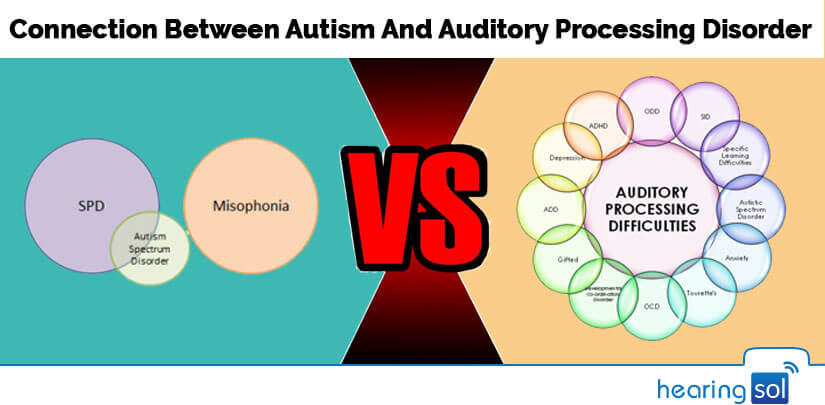
We observe that many young children seem to have problems decoding the sounds around them. They miss a lot of the details, especially in noisy or distracting environments.
When we talk about the ability of a person to understand spoken language, it doesn’t mean the ability of the ear to detect sounds. But also being able to recognize, interpret, and use the acoustic information in our environment.
If you need any assistance or you have a query regarding Autism And Auditory Processing Disorder or Hearing Loss, you can consult our HearingSol experts with your problem, feel free to call us at +91-9327901950. We are always here to help you.
Research also suggests that autism affects learning and social development. It also involves difficulties in distinguishing and processing sound. It is one of the most basic skills required to understand speech.
Auditory processing is an important part of social communication. People with autism spectrum disorder typically have problems processing this information.
An auditory processing disorder refers to the condition when something affects the processing or interpretation of information from the sound. It is also known as language processing disorders.
Children having auditory processing disorder can interfere with both learning and interacting with other people. Autistic Children with auditory processing disorders can hear. But they find it difficult to perceive what they hear.
What Is Auditory Processing Disorder?
It is also known as central auditory processing disorder (CAPD). It’s a hearing problem that affects mostly school-aged children.
Kids with this condition face problem in processing information what they hear. This is due to the reason that their ears and brain don’t coordinate properly and completely.
Early diagnosis is important. This is because when this condition isn’t treated early, a child can show signs of speech and language disorder.

Symptoms
Symptoms of APD can be mild or even severe. If you think your child might be suffering from processing sounds, you can ask yourself these questions:
- Is your child easily distracted by loud or sudden noises?
- Is noisy environment upsetting to your child?
- Do your child’s behavior and performance improve in quieter settings?
- Does your child face any issue in following directions(simple or complicated)?
- Does your child have reading, spelling, and speech-language difficulties?
- Are verbal and math problems difficult for your child?
- Is your child becoming forgetful?
Auditory Processing And Autism
Do you about how many children are now affected by Autism Spectrum Disorder (ASD)? The answer is only 1 in 88 are mostly affected by ASD.
Children having ASD faces a socialization problem which in turn may lead to Auditory Processing Disorder(APD).
The key to getting a proper diagnosis and the treatment for autistic kids is recognizing the symptoms of language and hearing deficiency.
If you are suffering from autism then you may experience the following problems:
- Humming in response to chatter or other noises.
- Reacting in situations that don’t seem particularly noisy to most people.
Causes Of Auditory Processing Disorder In Autism
Though the causes of APD are still not known for autistic people yet there are some theories.
Theory 1: One theory holds that the brain’s hippocampus is responsible for processing auditory information. It may be “immature” in people with autism. It says that autistic children may hear normally. But they may face issues in processing sound.
Theory 2: Here, children with autism don’t pay attention to some sounds. And their attention also shifts slowly. An interesting fact found out by these researchers was the preference of odd sounds by autistic children over the sound of their mother’s voice.
As an outcome, sound processing and sound discrimination were found to be normal in these children. It was observed that they did not pay attention to changes in speech.
How Can Research Help?
The research aimed to strengthen our understanding of the brain activity patterns. These patterns are associated with sound hypersensitivity.
Not only this, but it is also linked with language difficulty in adolescents and young adults on the autism spectrum.
The first step is to develop all personalized interventions. These interventions can support communication. It can also improve the quality of life.
The major part of this research is to analyze the autism-related difficulties in understanding language stem.
This examination occurs from a combination of brain-based auditory processing issues and the individuals’ behaviors to escape the stress caused by sound sensitivity and social communication more generally.
New Approach
Around one-third of children and adults suffering from autism faces severe language impairments. We believe that they are likely to be more influenced by auditory processing disorders.
On the other hand, it can be a bit challenging to study APD in people having difficulty in understanding spoken directions. For this reason, most research(on APD) has focused on people having language and cognitive abilities.
Electroencephalography(EEG) overcomes this hurdle to measure how the brain registers and processes sound.
APD Program Risks For ASD Children
As you would expect but working on auditory processing disorder to help autistic people is not always successful.
Some of the Scientific Learning Corporations like Fast ForWord has a high success rate in helping auditory processing disorder.
There are two big caveats that parents should understand for an autistic child:
- There are some children with ASD who cannot access the lowest level of the program.
- Sometimes other significant gating factors also have a role to play.
Diagnosing An Auditory Processing Disorder
Remember that learning or listening to all language problems don’t lead to a diagnosis of APD. There is no doubt that teachers, psychiatrists, and other diagnosticians can definitely help parents to detect and discover the signs.
They may learn about the difficulties an autistic child is having within their learning environment, but there is not an accurate diagnosis for an APD.
APD diagnosis is done under the supervision of audiologists. Audiologists have the specialized training and innovative equipment used to evaluate the presence of an APD. It can also determine its exact nature.
Testing By Audiologists
Different tests are performed by audiologists in order to evaluate your child. Some of these tests are mentioned below.
1. Aural Health Review
Checks ear anatomy, the presence of chronic fluid, blood tests such as lead levels, and metabolic tests.
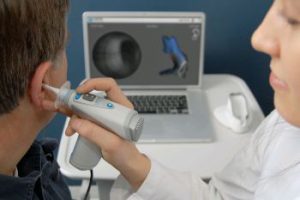
2. Tympanogram
The acoustic reflex measure of middle ear health determines the possible hearing loss.
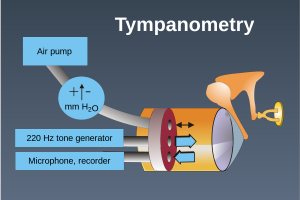
3. Behavioral Hearing Test
The patient is asked to respond to auditory stimulation. It is not appropriated for all ages or children.
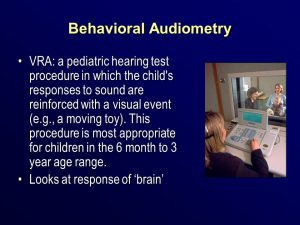
4. Central Auditory Processing Evaluation
It determines whether a child has a problem with discerning certain sounds.
5. Otoacoustic Emissions
Measure the presence or absence of typical “echo” responses to sound by using a soft sponge earphone is placed in the ear canal.
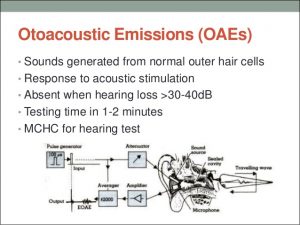
Preventions For Autism and Auditory Processing Disorder
Steps that can be taken by parents
- Reducing background noise at home and at school.
- Does your child make eye contact with you when you’re speaking?
- Use simple sentences.
- Speak at a very low rate.
Steps that can be taken by teachers
- Alter seating plans so the child can sit in the front of the room or with his or her back to the window.
- Provide additional aids for studies, like an assignment pad or a tape recorder.
Conclusion
Thus, we conclude that there are different techniques and technologies available today to cure autism and auditory processing disorder. Yes, these two are linked together affecting auditory processing skills.
If you need any assistance or you have a query regarding Autism And Auditory Processing Disorder or Hearing Loss, you can consult our HearingSol experts with your problem, feel free to call us at +91-9327901950. We are always here to help you.

 Reviewed by Mr. Ranjeet Kumar
Sr. Audiologist, Speech Therapist & Cochlear Implant Specialist, BASLP on
Reviewed by Mr. Ranjeet Kumar
Sr. Audiologist, Speech Therapist & Cochlear Implant Specialist, BASLP on